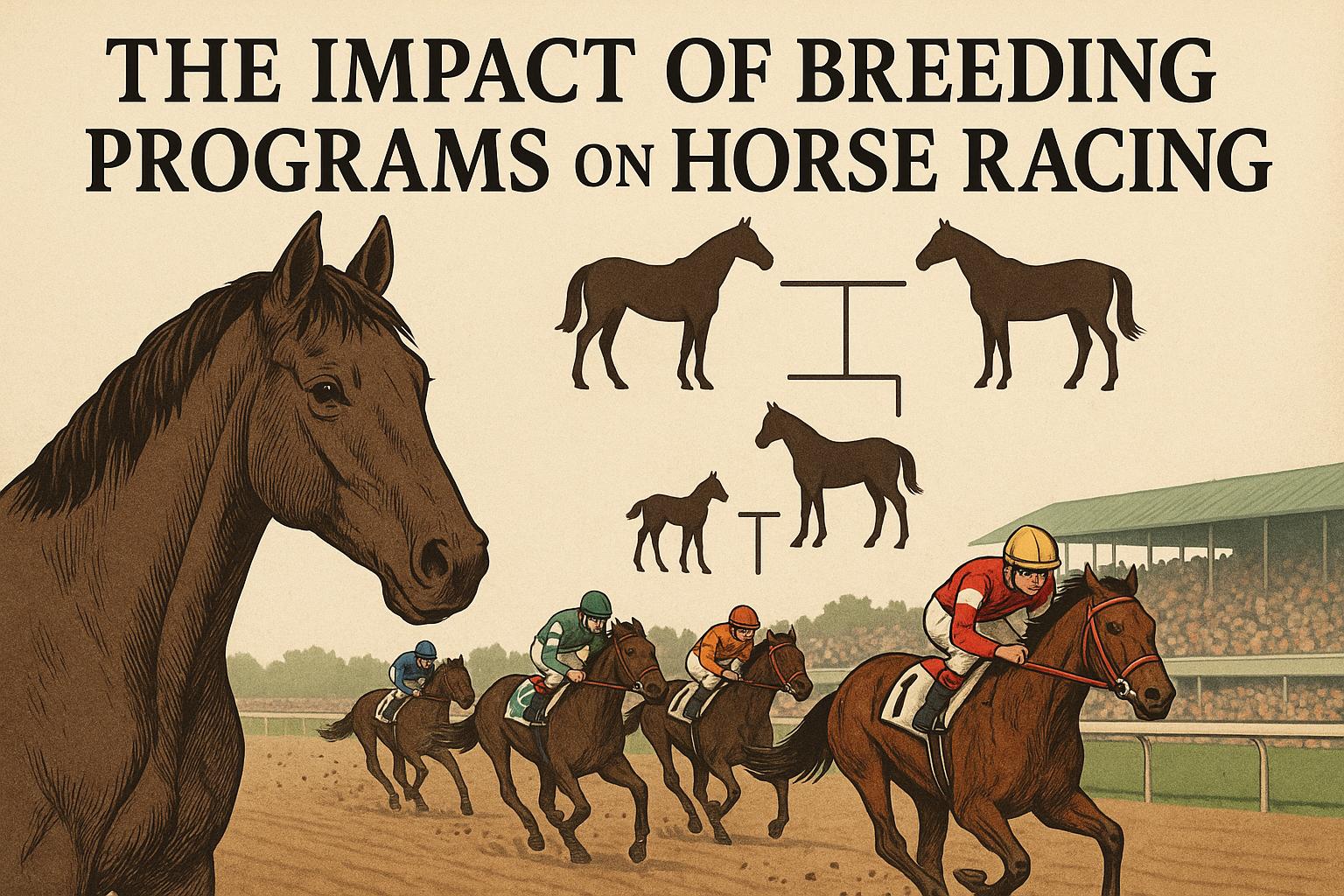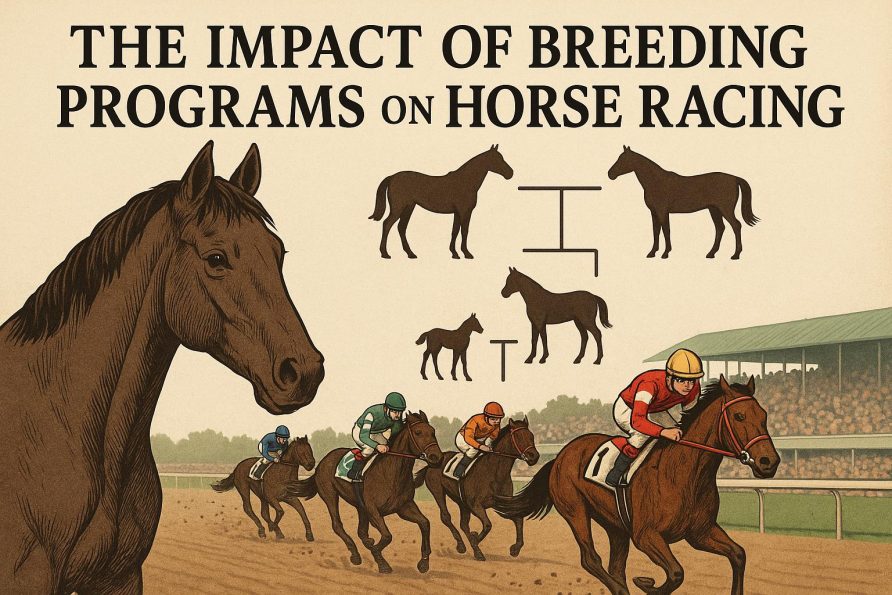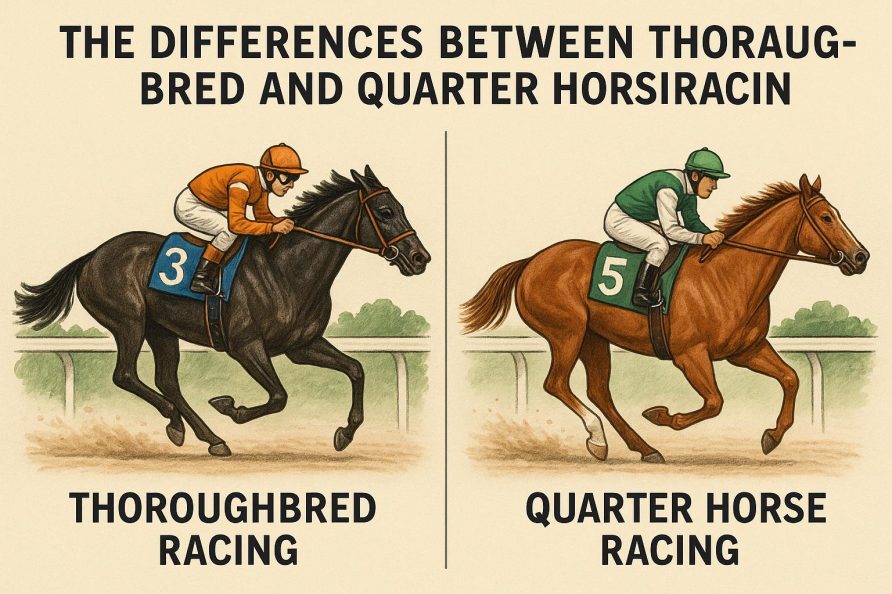Introduction to Breeding Programs in Horse Racing
Breeding programs hold a central place in the evolution of horse racing, playing a pivotal role in the enhancement of lineage, performance, and overall quality of racehorses. These meticulously managed programs heavily influence the sport by shaping genetic traits that are crucial for the success and health of racehorses.
The Role of Genetics in Breeding Programs
At the heart of horse breeding programs lies the goal of enhancing desirable traits such as speed, stamina, and temperament. Genetics is a fundamental element in these programs, facilitating breeders to selectively pair horses possessing outstanding athletic qualities and proven race records. By doing so, the aim is to produce foals with superior racing prowess.
One key aspect of breeding is understanding the genetic markers that contribute to a horse’s speed and endurance. Advances in genetic research have empowered breeders with the tools necessary to predict and select the most promising matches. This has led to an era where breeding is not just an art but a science.
For a deeper dive into the intersection of genetics and horse breeding, visit this resource.
Enhancing Performance and Longevity
While improving performance is a primary goal, breeding programs also emphasize enhancing the longevity and durability of racehorses. Horses with robust conformation and resilience to common equine ailments are prioritized, resulting in offspring less susceptible to injuries and capable of sustaining longer racing careers. This is not merely about producing winning horses but ensuring their well-being and ethical treatment.
By doing so, breeders contribute to the sport’s economic sustainability. An injured or unhealthy horse not only affects the owner but also the broader industry, resulting in financial losses and potential negative impacts on public perception.
Impact on the Horse Racing Industry
Breeding programs do not merely influence individual horses; they have a profound impact on the entire horse racing industry. Consistently producing faster and more resilient horses raises the level of competition, enhances spectator interest, and increases betting volumes. This contributes positively to the economic health of the industry.
The prestige of a racehorse often reflects back on the breeding operation, further encouraging investments in cutting-edge breeding techniques. Successful programs gain reputational advantages, setting benchmarks that others strive to achieve. This creates a dynamic ecosystem of competition that pushes for continual advancement.
Moreover, the financial implications of breeding programs extend into several economic sectors, including tourism, employment, and media rights, each benefiting from the excitement and interest generated by the sport.
Ethical Considerations and Challenges
Despite their benefits, breeding programs do not come without ethical considerations and challenges. The intense focus on breeding elite athletes can sometimes prioritize success over animal welfare, leading to concerns surrounding overbreeding and genetic health issues. It’s imperative for breeding programs to adopt ethical standards that emphasize the well-being of the horses.
Ethical challenges may include the risk of producing horses with genetic disorders due to a limited gene pool, ensuring that breeding practices do not compromise a horse’s quality of life, and maintaining transparency in the breeding process. Addressing these challenges requires a commitment to responsible breeding principles.
To explore ethical breeding practices further, consider reading this article.
Future Directions and Innovations
As technology and genetics continue to evolve, the future of horse breeding programs looks toward integrating innovative approaches that can enhance both ethical standards and breeding success. Technologies such as genomic sequencing, CRISPR, and other genetic manipulation techniques open new possibilities for refining breeding practices.
Innovation in equine nutrition and health care also supports breeders in producing healthier horses that can race at optimal performance levels. By adopting a holistic approach, the future of horse breeding can ensure not only faster and more resilient horses but ones that lead fuller, healthier lives.
Furthermore, global collaboration between breeding entities will likely accelerate advancements across the field. Sharing knowledge and resources might contribute to a more robust and ethically sound breeding industry, fostering international standards and practices that benefit all participants.
In conclusion, horse breeding programs have a significant impact on the sport of horse racing. By focusing on genetics, performance enhancement, and ethical practices, they continue to shape the future of the industry, ensuring the production of superior racehorses that captivate audiences worldwide. As these programs advance, they promise to uphold the rich tradition of horse racing while championing the welfare of these magnificent animals. The continuous evolution of breeding programs signals a promising future for one of the world’s most cherished sports.





